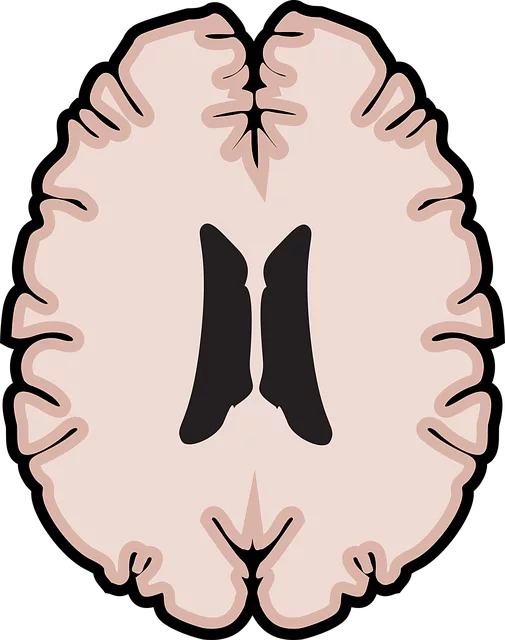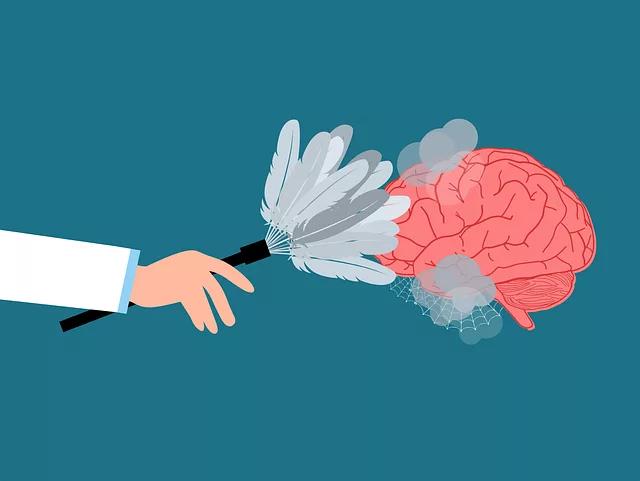Kaiser in Broomfield is a standout provider of comprehensive mental health care, including inpatient services, with a unique focus on group facilitation. Their skilled communication strategies create safe spaces for individuals to connect and support each other, reducing stigma and promoting understanding. Through interactive sessions and social skills training, Kaiser empowers members to manage stress, regulate emotions, and build resilience. This holistic approach, combined with robust mental health policy advocacy, ensures the effectiveness of their services in fostering emotional healing and overall well-being among Broomfield residents. The success of their facilitation strategies is measured through participant feedback and self-reported improvements in emotional health and mental awareness.
Mental wellness group facilitation plays a pivotal role in supporting individuals navigating their mental health journeys. This article explores effective techniques for facilitators, focusing on strategies employed by Kaiser in Broomfield to create safe spaces within their services. We delve into fostering engagement, promoting open communication, and measuring success through evaluation. Discover how these practices enhance well-being outcomes, particularly relevant for understanding the role of inpatient mental health facilities like Kaiser in Broomfield.
- Understanding Mental Wellness Group Facilitation: A Role for Kaiser in Broomfield
- Techniques to Foster a Safe and Supportive Environment
- Strategies for Effective Communication and Engagement
- Measuring Success: Evaluating the Impact of Group Facilitation Techniques
Understanding Mental Wellness Group Facilitation: A Role for Kaiser in Broomfield

In the vibrant community of Broomfield, Kaiser has established itself as a prominent provider of mental health services, including inpatient care when necessary. Beyond individual treatment, Kaiser recognizes the power of group facilitation in fostering mental wellness. Group sessions offer a safe and supportive environment where individuals with shared experiences can connect, share their stories, and learn from one another. As a facilitator, Kaiser’s role is crucial in guiding these conversations, ensuring every voice is heard, and promoting an atmosphere of understanding and empathy.
Through effective communication strategies, Kaiser helps participants navigate the complexities of mental illness stigma reduction efforts. By fostering open dialogue, they encourage members to challenge stereotypes and build a more inclusive community. These sessions cater to diverse needs, providing tools for stress management, emotional regulation, and resilience-building. Kaiser’s approach emphasizes the importance of group dynamics in enhancing overall mental wellness, making their services an integral part of Broomfield’s healthcare landscape.
Techniques to Foster a Safe and Supportive Environment

Creating a safe space is paramount when facilitating mental wellness groups, especially considering resources like Kaiser’s inpatient mental health services in Broomfield. This environment should encourage participants to open up and share their experiences without fear of judgment. Techniques such as active listening, where facilitators demonstrate genuine interest and empathy, play a crucial role in building trust. Establishing ground rules that emphasize respect, confidentiality, and non-discrimination ensures every member feels valued and supported.
Additionally, incorporating activities that promote camaraderie and understanding can foster a supportive atmosphere. Icebreakers and group exercises aimed at normalizing mental health conversations can help reduce stigma. Facilitators should also be attuned to individual needs, offering resources for those dealing with specific challenges like depression prevention or coping skills development. This holistic approach, backed by a robust mental health policy analysis and advocacy, ensures the group’s safety and effectiveness in promoting overall well-being.
Strategies for Effective Communication and Engagement

In facilitating mental wellness groups, effective communication is key to creating a safe and supportive environment for all participants. Group leaders should encourage active listening, ensuring everyone has an opportunity to express their thoughts and feelings. This can be facilitated through open-ended questions, reflective listening, and summarizing what individuals have shared to demonstrate understanding. By fostering an atmosphere of trust and empathy, facilitators can help members feel validated and respected, enhancing engagement and participation.
Additionally, incorporating techniques such as storytelling, role-playing, and group discussions can make sessions more interactive and dynamic. These methods not only promote Emotional Healing Processes but also enhance Stress Management by providing coping strategies and support from peers. Furthermore, Social Skills Training can be woven into these activities to help individuals build connections, improve communication, and develop a stronger sense of community within the group setting, reflecting the comprehensive approach Kaiser offers in its Broomfield mental health services.
Measuring Success: Evaluating the Impact of Group Facilitation Techniques

Measuring success is a vital aspect of evaluating the effectiveness of mental wellness group facilitation techniques. It involves assessing how well these methods promote emotional healing processes and improve overall mental health awareness among participants. One way to gauge success is by tracking individual progress through self-reported measures, such as Mental Wellness Journaling Exercises Guidance, which can capture changes in mood, anxiety levels, and personal insights gained from the group sessions.
Additionally, facilitators can assess the impact of their techniques by observing participant engagement and interaction within the group. For instance, does Kaiser’s inpatient mental health services in Broomfield show improved attendance rates or deeper discussions as a result of implemented facilitation strategies? Such observations, combined with feedback from participants, provide valuable insights into which techniques are most effective in fostering meaningful connections and facilitating positive emotional healing processes.
Mental wellness group facilitation plays a pivotal role in supporting individuals within the community, and organizations like Kaiser in Broomfield are well-positioned to make a significant impact. By employing techniques that foster safety, engagement, and effective communication, facilitators can create an environment conducive to healing and growth. The success of these initiatives is measurable through evaluation, allowing for continuous improvement and enhanced support for mental health needs in the community, including those who may require inpatient services.






